It didn’t take long after the State of Louisiana passed a law requiring the Ten Commandments to be posted in every public school classroom for the predictable social media implosion. On one side were the atheists and secularists freaking out – pulling out (again) Thomas Jefferson and Alexander Hamilton quotes about separation of church and state. On the other were the expressions of “finally we’ll get some morals and bring back Christian values to our schools” crowd. I’m sure many hearts and minds were changed immediately by the succinct and stinging truth of the memes 😊.
As a pastor in a mainline denomination, I find the whole obsession with the Ten Commandments interesting, if a little bit odd. Why that one part of the Bible, out of all 66 books? If you notice, these votes for explicit, public Christianity are always about having those ten rules posted – whether on lawns, state houses, or schools. What’s behind it?
Of course, the meme circulates about why we don’t put up the Beatitudes of Jesus instead. Why not have every kid read:
"Blessed are you who are poor, for yours is the kingdom of God.
21 "Blessed are you who are hungry now, for you will be filled. "Blessed are you who weep now, for you will laugh.
22 "Blessed are you when people hate you, and when they exclude you, revile you, and defame you on account of the Son of Man.
23 Rejoice in that day and leap for joy, for surely your reward is great in heaven; for that is what their ancestors did to the prophets.
24 "But woe to you who are rich, for you have received your consolation.
25 "Woe to you who are full now, for you will be hungry. "Woe to you who are laughing now, for you will mourn and weep.
26 "Woe to you when all speak well of you, for that is what their ancestors did to the false prophets.
27 "But I say to you that listen, Love your enemies, do good to those who hate you,
28 bless those who curse you, pray for those who abuse you.
Luke 6:20-28
Well, the second part, in the Gospel of Luke, is avoided even by most Christians. We don’t like the idea that God is going to punish the rich for being rich in the final judgment. But it is what Jesus said.
The people who ask the question are coming at the it from a totally different perspective than those who want the Commandments posted. If you believe that the underlying problem with America is a lack of religious discipline, family authority, moral regulation – then the Ten Commandments are perfect. They even include explicit commands to obey parents, to not cheat on your spouse, to not kill and steal. If you believe that the root of crime and drugs is kids not obeying parents, parents not disciplining kids, children not respecting authority, and criminals not fearing punishment, then these commands fit in perfectly. We can turn the country around by teaching religious laws.
But there’s a lot of caveat here that many are quick to point out.
There are two versions of the Ten Commandments, one in Exodus 20:1-17, and one Deuteronomy 5:6-21, and the wording and ordering are somewhat different. Translation issues abound. Christian denominations differ in how they interpret the laws. Martin Luther wrote a whole section of his catechism on these, to make sure you understood that they are not just prohibitions against sin, but commands to actively to good to build up your neighbor. For example, here is his section in the Small Catechism on the eighth commandment: You shall not give false testimony against your neighbour.
What does this mean? We should fear and love God so that we do not tell lies about our neighbour, betray him, slander him, or hurt his reputation, but defend him, speak well of him, and explain everything in the kindest way.
But that’s not getting posted.
Then, of course, you have the establishment clause of the Constitution. The Louisiana law is guaranteed to be contested in court.
But if Jesus is the center of your religion, why not one of his quotes on the walls? Why not some blessings on the poor, meek, persecuted, merciful? Won’t Jesus’ words make better citizens – going around blessing the poor and needy?
Well, that’s a different take on what makes for good citizens. The Beatitudes imply a world of powerful and powerless, rich and poor, oppressor and oppressed, one that is structural and systemic, where the have nots are victims of the social and economic order, and Jesus is promising them blessings in the Kingdom that the rich and powerful will not get. It’s class struggle and revolution. Of course people of a liberal bent would gravitate towards that.
It's the same chicken-and-egg debate we keep having all the time about human behavior.
Do we do what’s good because we fear punishment for doing bad?
Or do we do good because we have sufficient resources and a good system that doesn’t encourage bad behavior?
For example: do people steal from stores because they are lazy and don’t want to work and just want to indulge in drugs? Or, do they steal from stores because they can’t get rent, jobs, treatment, education to be on their own?
Is it possible that both, to some extent, are true?
Is life complicated, and people complicated? You hear of trust-fund babies committing crimes, when they have all the money in the world. And you hear of people improving their lives through better choices after being tired of consequences. Life is not so simplistic.
My own experience with authoritarian teachers and coaches probably poisoned me on this debate. I saw so many abusive power-trips, and so much creative glee by kids finding ways to break the laws, that the whole system soured me. The more you clamp down, the more fun it is to rebel. On the flip side, I’ve seen classes turn into zoos without enough law and order. But when I worked with teachers who had the authority, but chose instead to put their energy into building up students, listening, guiding, encouraging, there were less behavior problems, fewer incidents. The excitement of rebellion was gone.
So I tend to think that, while law and order are needed, they should be the second approach to social problems, after we’ve tried to make sure that everyone has food, water, shelter, education, health care, equal rights, opportunity, affordable housing, transportation. If these were all provided in the best possible way, and then someone still insisted on robbing the corner store, then you could say with confidence that the person is lazy and doesn’t want to work. But if rent requires a job of $45k for the cheapest place, and a first month, last month, security deposit, background check to get in – and minimum wage doesn’t pay half that, have we done enough?
Our theology, as Lutherans, is one of Law and Gospel. We need the law to show us what our sin is. We need the Gospel to show us the path of salvation. Our hearts should fear sin, but also be so filled with God’s grace that we do good out of gratitude, not fear. Jesus’ love should be the motivator, and if we were perfect at it, we would need no law. But we’re not perfect, so the law has to stay. But it’s the church’s job to show and live love so much that we can put the law out of business.
Luther’s view on Law and Gospel is one of the gems of his theology, and one of the most misunderstood. He was a dialectical thinker, meaning that he held both positions simultaneously in tension, and working off each other. It’s not how we normally think. Most of us think in either-or’s, or fractions. We need either law or Gospel. Either police or social programs. Either rehab or jail. Or we believe we need 30% law and 70% Gospel. We need 50% police and 50% social programs etc. But for Luther, people were both at the same time. We have a sinful nature, that’s a part of us, that needs law and authority to teach us what’s right and wrong, and to punish us for violating that. I think he could go way too far with his thoughts on authority, and sometimes have an overly pessimistic view of human nature, such that he disdained peasant rebellions and democracy. But that said, he did not believe that we could simply rise above social problems with the right cocktail of structural change and government spending and empathy.
On the other hand, he was the person who famously criticized the Pope, and challenged his authority, and undermined it. To Luther, Leo X was corrupt and unworthy of the position, and was not teaching the Gospel. Today, most Catholics would probably agree with that sentiment too. He did see authority as needing limits.
So he felt that while the law should hold us accountable, the Gospel should be there equally to remind us of salvation and call us to a higher and more Christ-like life. With all law we become despondent, hopeless. What’s the point if we’re just going to get punished. On the other if we only had the Gospel, then Jesus would be a quaint and nice teacher of interesting things, who needlessly died a death he could have prevented. He could have accomplished his stuff by writing his manual on love and ethical behavior (and gone on the marry Mary Magdalene or whatever). The Gospel is nothing without the law to teach us what sin is. The law is nothing if there is no way to be redeemed. They need to both exist, fully, simultaneously, until Jesus returns. Only then will we be able to live in a world so perfect that we won’t need the law. Until then, we live in a tension of both-and.
You can imagine how this takes a little bit to wrap your brain around, and why it’s easier to default to a polar position of one or the other.
When I look at countries around the world, you have several examples of law: Saudi Arabia, Brunei, North Korea, China, Cuba. These places have low crime, clean streets, order. But we all know there’s a price, and very few people are moving to these places because of it. On the other hand, we have examples of countries that have invested in preventative measures, programs, social safety nets – Sweden, France, Germany, New Zealand – and they have people flocking to get in. Yes, they still have police. In fact, one thing I noticed in Sweden last summer was the increased police presence, and their open carrying of firearms. This used to be something they would brag about not needing. Then I landed in Stockholm and saw the guards with AK-style weapons walking around the airport, and knew that times had changed. Nobody has no police or laws or prisons, but many places have tried to invest in both the “soft” measures as well as the “hard” punitive ones.
We live in this tension, needing both at the same time.
My question for those in Louisiana is: why only the Ten Commandments, and not also the Beatitudes? If the kids need to be reminded of their sins, why not also remind them about God’s abundant love and compassion for those most downtrodden? If it’s about being Christian, why not also have Jesus’ words?
I would argue the theology behind the legislation is missing half the equation: the Gospel. Laws without it rarely change much. Think of a kids who grow up in homes with tons of love and support: do they get in as much trouble as kids who grow up in loveless houses with harsh belt lashings ? We know the answer. You can’t have all love and no law, or you’ll get walked over. But law without love is just being cruel, and will lead to rebellion or self-harm.
It's my position that the Ten Commandments in classrooms thing is a short-cut, a way to try to reform behavior without doing the hard work (and spending the tax money) on the soft preventative measures, fixing unjust systems and providing social supports. In fact, the state of Louisiana is not even paying for the actual posters with the Ten Commandments – they’re soliciting donations!!
And as for their efficacy, I don’t think a whole lot of kids would actually change their behavior if they saw them on a school wall. The fact that the government posted it would make it exciting to rebel against. It would be a fun target to desecrate when the teacher isn’t looking, or a bingo card to brag about violating and not getting caught. It would be like the “don’t use drugs” posters they put up when I was kid. It made drugs more cool and fun. I also don’t think posting them will change any of the fundamental problems behind why kids get in trouble. Broken families, violent neighborhoods, proliferation of weapons - none of that will be changed by the posters. It won’t make kids want to go to church, or believe in Jesus if they don’t already.
The love of Jesus changes lives. I believe this. I have seen it. Hardened criminals have turned their lives around. Enemies have reconciled. People find hope. It’s real and not just in your head. But love does not come disembodied. It has to be experienced through someone. Posters are things. They cannot love. But people can love, and share their faith, and talk about Jesus. This is the church’s job, maybe our biggest job. The state has the power to enforce and teach laws, but it cannot love. It cannot care. It cannot show you your worth and dignity. This must be done by people, and that is our calling.
Pastor Lars





























